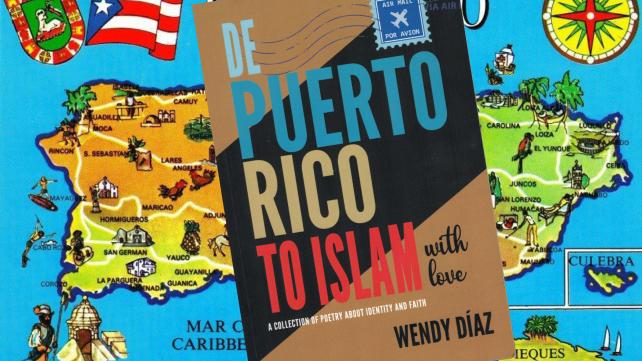
“Poetry is miraculous. I believe it emerges from deep within the soul,
inspired by the Heavenly Divine and our worldly experiences in this life.”
That is the opening line of author Wendy Díaz’s “De Puerto Rico to Islam With Love.” This collection of poetry is self-described as works that speak to identity and faith. But it is so much more!
Díaz was born and raised for the formative elementary years of her life in Puerto Rico. Her mother was a nurse and her father was a teacher. They were surrounded by a large and supportive extended family. When Díaz was eight, her father enlisted in the United States Army to provide a more stable income for the family. That job pulled them away from her motherland “tropical, heavenly Borinquen (Puerto Rico)” and to the U.S. The transition was wrought with challenges - isolation, the struggle to learn a new language and customs, and the terror associated with her father’s deployment to the Persian Gulf War. It was in this backdrop that Díaz self-medicated with poetry.
The collection gives voice (in both English and Spanish) to a wide swath of feelings – joy, worry, grief, anger, love, and frustration. Díaz is also a revert, who has embraced Islam in a big way and works to share that passion with others. Her conversion story is provided in the beginning pages of this book in full detail. There is no intention to recount that here, as she must be in charge of the full narrative, but some parts are relevant to understanding the breadth of this work of heart and the instruction it can bring.
Díaz was raised Catholic and had a brief stint in a Catholic school. Her experiences with the harsh dictates of the school’s nuns pushed her away from a connection with God. Defiantly, she questioned the tenets that didn’t make sense to her – the idolatry of the statues abundant in the churches; the disjointed notion of the Trinity, which casts Jesus as the son of God; the suggestion that saints can act as intermediaries; the awkward role of the priest who has been ordained with the “power” to forgive a person’s sins.
The family moved often, living in Fort Bliss (“which it was not!”, she says), Texas, Alaska, Georgia, Maryland, and North Carolina. Disconnected from traditional church services, Díaz struggled to make sense of the world, even “converting unknowingly to evangelical Protestantism” while accompanying a friend to her church. She became friends with an Egyptian Muslim girl in high school. This association debunked many myths about Islam. However, she was warned by her pastor to stay away from the religion and to work to save her friend from Hell! There would be more awkward encounters with Christian denominations to come.
After meeting a new Muslim friend in yet another family move, Díaz had her first experience visiting a Masjid during Eid-ul Fitr. She was taken aback by the warm welcome, enchanted by the melodious Quran recitations, intrigued by what she began to learn about the true teachings of Prophet Jesus, peace be upon him. “These teachings made sense to me and confirmed what I already believed – that there were no idols, no intermediaries, no trinity; there was only one God.”
Four years later Díaz found herself declaring the Shahada or the Islamic testament of faith. Through her understanding of the Islamic concept of predestination, she understood better how each step in her life journey guided her in this direction. As many new reverts do, she jumped headfirst into her practice of Islam. In “Nothing More” she shares that conviction.
. . . I am no more than a slave for whom a path was paved.
A speck of dust that will soon be wiped away.I am nothing but a spark from God’s infinite light,
Limited by my sense of touch, taste, smell, hearing, and sight.I am only what He has ordained when He blew in me my soul,
Constantly reminded by life’s lessons that He is in control . . .
Díaz was learning at a rapid pace and happened into the common misconception that everything in a believer’s life struggle was either Halal (permissible in Islam) or Haram (forbidden). This notion is often imposed by well-meaning Muslims who take an assertive step to “guide” new Muslims. But the monolithic approach is not literally correct, and often leaves the well-intentioned newcomer struggling to make sense of the world around them. She shared that common experience.
Díaz and her family wrestled with her conversion, her “rejection” of the faith of her family, her Hispanic self. She didn’t quite fit in with the cultural Muslims around her. Her parents imagined the conversion was a phase and forbade her from wearing the Hijab (headscarf) outside of religious gatherings.
Then, 9/11 turned her life upside down. She recalled, “An overwhelming floodgate of allegations against Islam and Muslims was opened like Pandora’s box. This event triggered a domino effect of racism, hate, and violence that still plagues the Muslim community and our society to this very day.”
The tidal wave of intense emotion catapulted Díaz’s writing. Her poems “They Say,” “Oppression,” and “What Should We Do?” describe the chasm between a positive self-identity and the injustice levied by those who vilify our faith. She tackles the challenges of racism and Islamophobia; of defending the religion against insurmountable media foes; of lost opportunities (or worse!) when religious scholars are unable to communicate effectively with youth.
She has also written additional poems that give voice to the range of indifference, suspicion, and hostility often levied at converts by Muslims, too. In “I Am Not a Convict, I Am a Convert” she dares to ask, “If Allah chose me, then what gives you the right to reject?”
“De Puerto Rico to Islam With Love” speaks to additional topics including domestic violence, women chasing flawed definitions of beauty, a realization that the seeds of her conversion lay in first learning about Malcolm X, and the devastation that Hurricanes Irma and Maria brought to her homeland in 2017. As an author and activist, Díaz has gifted the reader with poise, pain, and promise.
I am the American, the Muslim.
I am the daughter of immigrants,
I am the relative of veterans,
I am the descendant of natives,
I am the future of greatness.
I am Muslim.
A nudge to contemplate. And so much to be inspired by.
Wendy Díaz is a Puerto Rican Muslim writer, an award-winning poet, translator, and mother of five. She is the co-founder of Hablamos Islam, Inc., a non-profit organization that produces educational resources about Islam and culture in Spanish. She is also the Spanish content coordinator for the Islamic Circle of North America’s WhyIslam Project, and a columnist for MuslimMatters.com. Díaz has also written, illustrated, and published 10 children’s books and is a frequent speaker at major conferences. She is also my friend and sister in this Deen.
Zahirah Lynn Eppard is Sound Vision’s Director of Religious Education.

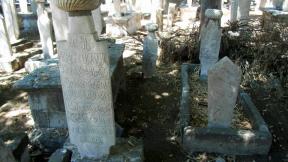
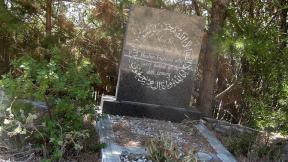
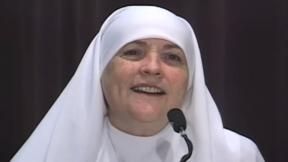
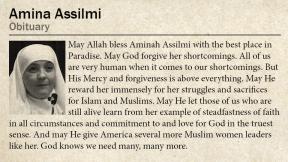



Add new comment